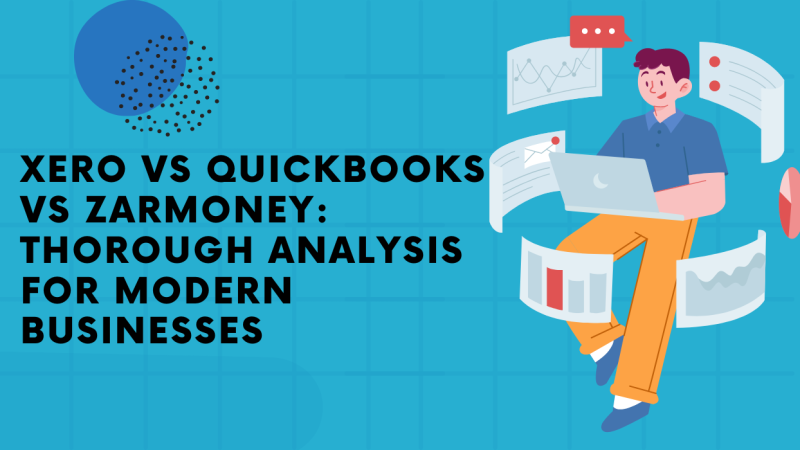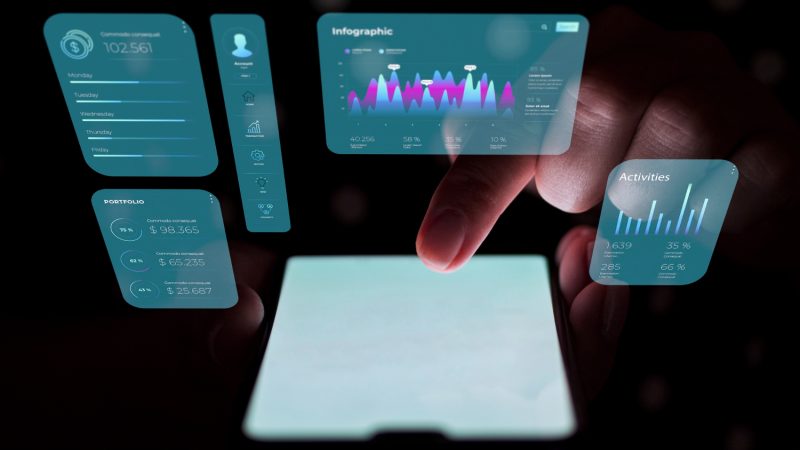Why tech-savvy professionals should pursue a business analytics degree

We live in a tech-driven world where businesses need technology to be successful and beat out the competition. The professional world rests at the intersection of business and technology, two concepts that are at the forefront of many business analytics degree programs. When you combine technology and business, the result is business analytics.
If you’re a fan of technology and are interested in business operations, a business analytics degree may be a great way to break out into the business world and apply your skills.
Let’s look at the many reasons tech-savvy professionals can be a great fit for a business analytics role and how you can become more comfortable with the ever-changing tech needed for these positions.
Are you tech-savvy? Here’s why a business analytics degree may be right for you
Do you love technology? Maybe every time you work with anything tech-related, it just seems to “click”, or perhaps you and technology have always worked well together.
If so, business analytics might be a great career path to take as it involves the use of technology for solving business problems.
This technology entails data analysis, statistical models, and other quantitative methods. Business analytics also uses next-generation technology such as machine learning, data visualization, and natural language query to implement organizational changes.
Therefore, it makes sense that someone with tech savviness would pursue a career in business analytics, since they have the technical expertise to translate data into actionable insights.
What is business analytics?
The first step to understanding business analytics is differentiating it from traditional analytics. Many people use the two terms interchangeably, but they’re not the same. Traditional data analytics often involves analyzing large amounts of data to gain insights and make predictions.
Business analytics, on the other hand, takes that idea and places it into the context of business insight. You can think of data analytics as a general description of the modern analytics process. Business analytics creates a narrower focus that involves using data to identify what a business needs to do to improve its bottom line.
Building mathematical models from data allows business analytics professionals to generate helpful insights to guide the decisions they make for an organization. These data-driven decisions can help a company make smart business strategies.
There are four major categories of business analytics, including:
Descriptive analytics: This involves working with specific variables to analyze a company’s historical business trends and recognize past impacts.
Diagnostic analytics: This form of analytics looks at the past performance of campaigns and processes to determine what happened and why. The goal is to accurately identify a cause-and-effect relationship by isolating all confounding information.
Predictive analytics: Predictive analytics are advanced analytics that make predictions about future outcomes. Predictive analytics combines historical data with other technology, such as statistical modeling, data mining techniques, and machine learning.
Prescriptive analytics: This is the process of using data to determine an optimal course of action. This type of analysis yields recommendations for next steps by considering all relevant factors.
Although business analytics involves technology and algorithms, businesses can’t rely on these tools alone. That’s why business analysts are so valuable to organizations because they fill the need for human discernment to make the right business decisions. A business analyst professional’s judgment is vital for providing context and guard rails to algorithmic outputs.
Examples of business analytics
Now that you have some general knowledge about business analytics, let’s take a deeper look by seeing it in action with some examples.
Business analytics has many applications in a wide range of businesses and industries. For example, many fast food companies use business analytics to evaluate the financial impact and popularity of new products before they implement them.
They might also use food and beverage analytics to look at how customers interact with drive-thru menus. As a result, they can gather insights into how consumers will react to certain technologies and changes.
There are other types of business analytics that can do more than just respond to what is happening at a particular moment in time. Some techniques help make predictions about customer behavior and other business-related issues.
This involves predictive analytics. Some casinos use predictive analytics to increase their profits and keep customers coming back.
For example, casinos may track players’ spending to learn which customers they earn the most money from. This helps casinos determine how they can incentivize their biggest spenders to keep them coming back.
Now that you see how business analytics has uses in different industries, let’s look at which key business areas it can be applied in, regardless of the industry:
Marketing: Businesses can use analytics to identify the success and impact of a marketing campaign. It can also be used to predict which customers are more likely to respond to a campaign. Using analytics in this way, organizations can gather data to drive strategic marketing decisions.
Human resources: Many organizations use business analytics to find and share talent insights. This involves HR leaders working to better understand how their programs affect the business as a whole. It can also provide valuable insight into why employees make certain decisions regarding their career. For example, HR teams might implement diagnostic analytics to determine why a company is experiencing high turnover. As a result, HR teams can implement programs tailored to solve the problems that are driving employees to leave so they can retain top talent.
Sales: Sales is a crucial area that business analytics can improve. Many salespeople struggle with closing deals and even prospecting for the right customers in the first place. Using business analytics, sales leaders can determine key insights, such as the critical moments that lead to a sale, the nuances of the sales cycle, and all the different variables that lead to a purchase.
Finance: Business owners often have a hard time figuring out the best ways to increase their profit margins or determining ROI on different expenditures. With analytics, it is easier to make determinations and key business decisions based on findings. For example, businesses can determine what to spend more money on based on the data.
Why is business analytics becoming more popular?
Many forward-thinking companies are looking for ways to use big data in order to improve their bottom line, boost the customer experience, and maximize profits.
This goes to show that the business world is growing rapidly with data. As a result, organizations need to quickly understand vast amounts of data and extract relevant and valuable information from those findings.
To gain a competitive advantage, retain customers, and keep valued employees on board, these businesses must make data-driven decisions quickly and efficiently. One of the best ways to do this is to hire a skilled business analytics professional who knows all about turning data-driven insights into actionable decisions that benefit the company.
Before business analytics gained popularity, major players in the tech sector were the main organizations employing business analytics professionals. Now, however, more data is available to more businesses than ever before.
As a result, the field of business analytics is soaring to new heights in terms of popularity. Companies in a wide range of industries and sectors are now using business analytics to improve their decision-making and optimize business outcomes. That’s why many professionals are pursuing an online msba to advance their careers.
If you are still not certain about the value a degree in business analytics brings, here is a look at a few benefits companies can gain from having a business analytics professional on their team:
- Businesses can prepare for different changes to improve their strategies, operations and processes.
- Businesses can identify potential risks and how they can best prepare for any unexpected changes.
- Businesses can use data to make their resources more efficient.
- Businesses can make informed decisions by learning information to identify potential risks and avoid losses.
Skills every business analytics professional needs
Are you ready to start your journey to earning a business analytics degree? If so, it’s important to know about some of the key skills that can help you succeed in whatever role you choose. Here are a just a few important characteristics:
Tech-savvy: Being tech-savvy can help analyst professionals excel at their jobs. This is because the role demands a deep knowledge and understanding of technology and how to convert analytical data into actions. For example, analytics professionals should have a good understanding of tools and programming languages to translate data sources into tangible solutions. It is important to have the ability to analyze the capabilities of tools and technologies in the modern era to succeed as a business analyst.
Inquisitive: Curiosity is the road to critical thinking. Having an inquisitive mind allows you to ask the right questions at the right time, which will help you improve your understanding and thinking. Curiosity also helps you discover more creative solutions to different problems. When you can think critically and creatively, you are less likely to make errors in the decision-making process.
Good communicator: Perhaps the most important skill every business analytics professional should possess is good communication. That’s because you must be able to convey your analytics and thoughts in a simple way without losing sight of the most complex details. Listening skills are also a part of communication because they can help you understand the needs of the departments you’re working with.
Problem solver: One of the most valuable skills for a business analyst is problem-solving, because being able to solve problems brings value to customers and organizations. Without the crucial skill of problem-solving, business analysts would be limited in their contribution to their organization.
Critical thinker: Thinking might sound like a basic skill that everyone should have, but critical thinking is something different and is an underrated ability. It’s a skill that all business analytics professionals need to be successful in their roles. That’s because a business analyst must analyze and translate an organization’s requirements with great accuracy. Being able to think critically also helps a business analyst assess multiple options before arriving at the best solution. It will also enable a business analyst to reach their desired goals even if resources are limited and the conditions are not ideal.
Visualizer: Disorganized data can pose a big issue because it doesn’t give you a clear picture. To get the most out of the data they are analyzing, analytics professionals must be able to translate and visualize data in a concise and accurate way that is easy to digest. Data visualization allows business analysts to make decisions confidently using the information they have on hand. This involves quickly examining large amounts of data, understanding trends and issues efficiently, and making accurate decisions. Being a visualizer makes it faster and easier to point out areas of opportunities and concern so that key decision-makers can take action.
Detail-oriented and a “big picture” thinker: Business analytics professionals must be detail-oriented and have critical thinking skills to draw conclusions. Beyond that, they must be able to think in terms of the bigger picture using the information they gathered from data to identify trends. Being a good “big picture” thinker gives you the ability to harness the information you’ve gathered to analyze and improve tactics, processes, and strategies.
Business analytics career opportunities
Here is a look at some of the careers that those who have earned business analytics degrees can pursue.
Business analyst: After obtaining a business analytics degree, the most obvious career to pursue is that of a business analyst. As a business analyst, your job will be to bridge the gap between IT and the business. You’ll use data analytics to assess processes and recommend courses of action to key decision-makers.
Business intelligence analyst: As a business intelligence analyst, you’ll be responsible for reviewing data to produce financial and market intelligence reports. From those reports, you’ll be able to identify patterns and trends in a given market. Then, companies can make certain decisions and set goals based on those patterns and trends.
Healthcare analyst: A healthcare data analyst is in charge of gathering data. They will then interpret and use that data to create more efficient systems. As a healthcare analyst, you may work in a medical clinic or facility to improve health outcomes and control costs.
Marketing analyst: A marketing analyst is responsible for analyzing data to support a company’s marketing efforts. With the insights they find, marketing analysts help an organization make better business decisions, whether it is to increase revenue or optimize marketing campaigns. The research they conduct aims to understand what customers need and want in addition to measuring the effectiveness of the marketing and business strategies that a company employs.
Project manager: With a business analytics degree, you can be highly successful as a project manager. Much of the knowledge you gain as a business analytics major can be transferred to a project manager role. Many project managers who learn business analysis are successful in their roles because being skilled in business analysis allows project managers to develop project management procedures, analyze processes, and ensure the accuracy and efficiency of project deliverables. Being detail-oriented gives project managers the ability to follow the organization’s specifications and requirements to meet their highest satisfaction.
Solution architect: As a solution architect, you’ll be evaluating an organization’s needs and determining how IT can support them. Those who complete a business analytics degree have strong technical knowledge to succeed in a solution architect role. With a degree in business analytics, you’ll be keeping up with the latest platforms, tools, and technologies, which will be highly beneficial in a solution architect role.
Preparing for an ever-changing tech-centered world
Are you considering a career in business analytics? If so, how can you become more comfortable with the ever-changing technology needed in this career path?
Perhaps the best way to prepare yourself for new technology is to become familiar with current technology trends in the business analytics field. Depending on your job title and industry, there are specific computer skills and certificates you must be comfortable with.
These include:
- Microsoft Office
- Microsoft Visio
- Software design tools
- SQL queries
- Business process models
You should also be well-versed in:
- Statistical analysis software (R, SAS, SPSS, or STATA)
- Programming skills such as Python and R
- Business intelligence and reporting software
- Data mining
- Data visualization
- Database design
These technical skills will provide a strong foundation for your business analytics career. As you work with different tools and software, you’ll gain the analytical skills and knowledge needed to adapt to other technologies that arise in the future.
It also helps to have facilitation skills, which help business analyst professionals keep companies on track with their digital transformation strategies. Not only will business analysts be ready for digital transformation, but so will the companies that employ them.
Are you ready to advance your career?
If you’re a tech-savvy critical thinker and you love analyzing things to come up with key insights, a career in business analytics may be a great choice. There are many business analytics bachelors and master’s programs that can guide you along your journey. Whether you want to earn an online degree or go the traditional route, there are many options that can fit your unique needs and preferences.






